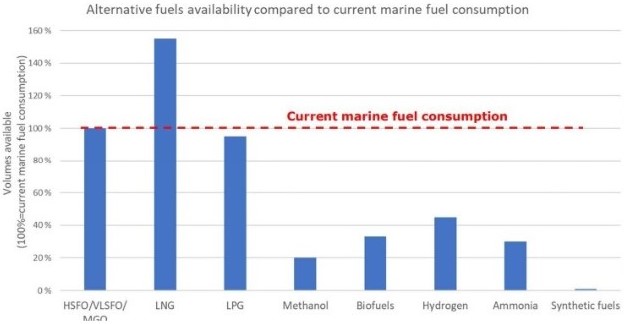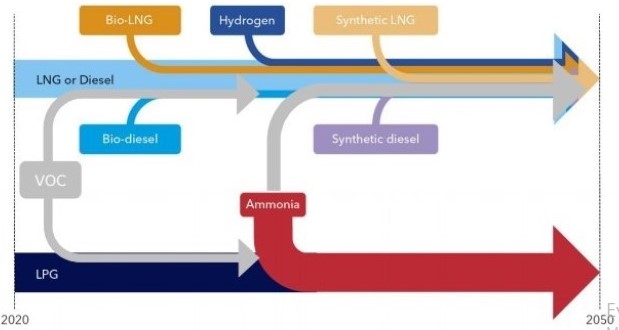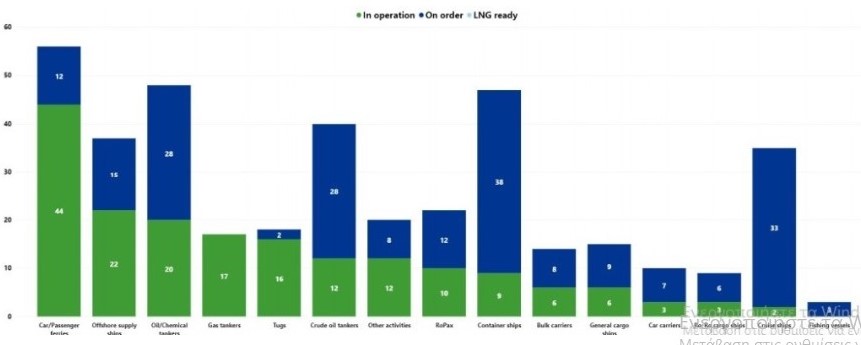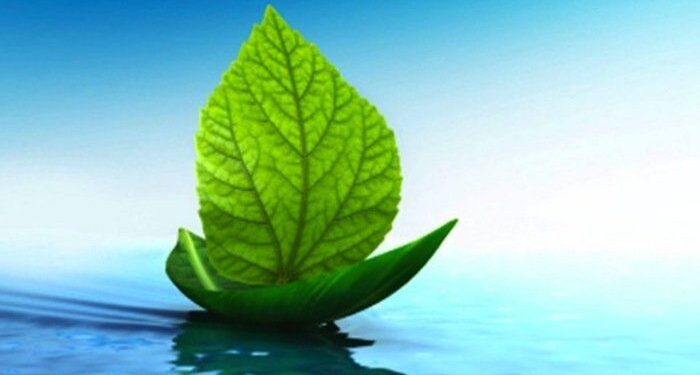Shipping is experiencing increasing pressure to decarbonize its operations and to reduce emissions to air. In April 2018, the IMO adopted an ambitious GHG reduction strategy, aiming to reduce with at least 50% total GHG emissions from shipping by 2050. As it is expected, such an unprecedented change, poses challenges for a range of stakeholders, from ship owners, to ship builders, designers, and fuel suppliers financiers and policy makers.
To address some of this challenges, DNV GL conducted a webinar, touching upon the current landscape in decarbinization, as well as what the future holds in terms of alternative fuels and energy efficiency technologies.
Regulatory overview
With 2008 as a baseline year, this strategy aims to reduce with at least 50% total GHG emissions from shipping by 2050, while at the same time reducing the average carbon intensity (CO2 per tonne-mile) by at least 40% by 2030, and 70% before mid-century.
In order to achieve these targets, the initial IMO GHG strategy will be revised in 2023 and reviewed again every 5 years thereafter. The IMO is following a two-tier approach to implementing decarbonization measures, focusing first on a limited set of short-term measures, before embarking on more comprehensive medium- and long-term measures.
Short term measures
Current measures addressing GHG emissions include only two mandatory requirements:
- The Energy Efficiency Design Index (EEDI) for new builds mandating up to 30% improvement in design performance depending on ship types;
- The Ship Energy Efficiency Management Plan (SEEMP) for all ships in operation – although it contains no explicit and mandatory performance requirements.
Medium- and long-term measures
While the proposed short-term measures should be enough for reaching the 2030 goals, further measures, or increased stringency of the short-term measures, are needed to achieve the 2050 ambitions.
The IMO has made the large-scale development and deployment of carbon-neutral fuels a core part of its long-term strategy. Some of these measures include:
- International Maritime Research and Development Board (IMRB);
- GHG and carbon factors for fuels;
- Methane emission regulation;
- Energy Efficiency Design Index (EEDI) Phase 4.
Nevertheless, the COVID-19 pandemic has turned tables upside down. While shipping would have discussed these measures last April, COVID-19 has postponed the meetings. Namely, there is pressure that procedure amendments must be approved fall 2020 at latest to meet 2023. What is more, a number of stakeholders are adamant that COVID-19 cannot be allowed to delay GHG regulations beyond the end of 2022.
EU developments on decarbonisation
The EU has launched the “European Green Deal”. This strategy’s goal is to achieve a climate neutral Europe by 2050, including shipping.
What is more, the strategy also strongly pushes for including shipping in the European Trading System (ETS), while a CO2 tax for maritime is also being considered. However, currently it is considered that ETS is simpler.
As far as IMO is concerned, EU is quite sceptic about the pace of IMO work amongst many EP members, showing a tangible desire for the EU to “take the lead”.
The “European Green Deal” – Climate neutral Europe by 2050, incl. shipping – Strong push for including shipping in ETS – CO2 tax for maritime also being considered but ETS seen as simpler – European Climate Law (mid-2021) as key vehicle § Scepticism to the pace of IMO work amongst many EP members, a tangible desire for the EU to “take the lead”.
In addition, regarding to the EU MRV and IMO DCS allignment, Eirik Nyhus, Director environment, says that there will not be alignment, or there will be a partial alignment. This means that operators will have to report to two different authorities, for the foreseeable future.
Challenges for ship owners
Ship owners should look both existing vessels and newbuilds. There are some aspects that are challenging for the both, such as what regulations are coming to force and which are retro-active, In addition, ship owners should consider what kind of fuel is available, if they want to switch to an alternative fuel, and of course what is the price of the fuel.
According to Jan-Olaf Probst, Business Director Container Ships, for existing vessels ship owners may want to consider reducing their ships’ speed, or make any kind of modification retrofit. Another question is whether ship owners can operate their existing tonnage until 2030 without any changes.
As for the newbuilds, ship owners should consider which equipment is developed and could be ordered today for a delivery in no more 3 years. In addition, ship owners must find a way to avoid retrofitting in the future, while at the same time ensure that they are safe for first re-financing with the present designs.
Fuel availability
Another criticial factor is which fuel to use and if this fuel is available. According to Mr. Probst, it seems that currently LNG is the bridging fuel, which is also the most available right now.

Regarding biofuels, their total production is not enough to serve the whole of maritime. In fact, only 40% will be able to use the fuel. The same applies for methanol, which is only about 20%. That means that if everyone chooses to use biofuels, other industries would not be able to use it. On the other hand, the production of LNG can easily serve the maritime industry.
Decarbonization options for shipping
According to Christos Chryssakis, Business development Manager, there are many options for decarbonisation. Firstly, there are the solutions such as reducing speed limit, which can be provide benefits, but to some extend. The same applies for using new technologies, such as hull coating, which although a solution, cannot be applied with the same result to every ship. Thus, the questions of the fuel resurfaces. As Mr. Crhyssakis says, we could move to mor exotic, alternative fuels as they become more available.
However, all these solution come with many barriers. The cost is typically one of the biggest ones, which includes the cost of the equipment on board, the cost of the infrastructure, and the cost of the fuel.
Another issue is availabilty and infrastructure. Currently, most of the alternative fuels are not available in significant volumes, or at attractive prices. However, shipping can use LNG and LPG, which offer a significant emissions reduction. If biofuels become more available, shipping cn replace part of the fule mix. The same can happen with synthetic fuels. There is also a lot of experimentation introducing hydrogen to the fuel mix, as well as ammonia, which has some commonalities with LPG.

LNG as fuel
The consumption of LNG is estimated to increase by 5 times until 2022. If we look at the ships using LNG as a fuel, they are mainly small passenger vessels, and some offshore. However, the new orders regard very large container ships, crude oil tankers, oil and chemical tankers and large cruise ships. This is a big change, as ocean going vessels are now choosing LNG as their fuel.
This is also supported by the development in LNG bunker vessels, whose capacity is expected to increase six times until 2021.
We can only see more of these projects coming
says Mr. Chryssakis.
Except for LNG however, there are many other fuel alternatives. LPG is quite interesting as we had the first LPG carrier being retrofitted, and there are several orders for newbuildings. It can provide about 17% GHG saving, while there are no methane problems and it is much easier to handle than LNG.
Methanol is also interesting. There has been experience mainly with methanol tankers, but the main problem has been the cost, which is higher than MGO. Nevertheless, methanol is easy to produce as biomethanol or sunthetic methanol.
Moreover, hydrogen is quite challenging mainly because of the size of the fuel tanks, the conditions that the fuel needs, and its price in terms of CAPEX. Despite its challenges, there are some passenger ferries being developed as we speak.
As for ammonia, it is an easier way to store hydrogen and it can be used in internal combustion engines, while there is engine development going on right now,a s well as fuel cell development. However, operators must be extremelt careful with its properties as its is extremely toxic. It is another option, but it will need more years to be developed and a few more years to prove that is a good fuel in operation.

Production of fuels
Finally, according to Mr. Chryssakis says that new fuels must be produced through electricity, but that can be an expensive process. For this reason, shipping must find the fuels that are more easily produced, such as ammonia, LNG and methanol.
What is more, the industry is starting now a fuel transition, which has to happen in a period of 30 years. Right now the industry has several options, but we are still going to use diesel engines, and gas engines, before we start using new fuels around 2030. However, the transition must take place qute quickly, supported by new regulations, but shipping should explore all its options, Mr. Chryssakis says, in order to find the best solutions for each vessel when these fuels become available.





























































